Are you exploring options for logistics services to streamline your supply chain? With countless providers out there, finding the perfect partner can feel overwhelming. In this article, we'll break down essential factors to consider when reaching out for quotes and information, helping you make an informed decision. So, let's dive in and discover the best practices for crafting your logistics service inquiry!

Subject Line Optimization
Effective subject lines enhance visibility and engagement for logistics service inquiries. Concise phrases such as "Logistics Service Inquiry for [Specific Need]" (e.g., "Logistics Service Inquiry for Urgent Shipment") or "Request for Quotation: [Service Type] in [Location]" (e.g., "Request for Quotation: Freight Shipping in New York") can efficiently convey intent. Including key details, such as shipment dates or volume ("Inquiry for Cargo Transportation: 500 Units by [Date]") adds urgency and specificity. Utilizing terms like "Urgent," "Request," or "Inquiry" also captures recipient attention, facilitating quicker responses in the fast-paced logistics industry.
Clear Intent and Purpose
Inquiring about logistics service options involves understanding the specific needs of transportation, warehousing, and distribution processes. Companies often require efficient supply chain solutions to optimize routes, manage inventory levels, and reduce shipping costs. Key factors to consider include service types (like freight forwarding or last-mile delivery), geographic coverage (domestic and international locations), and technology integration for tracking shipments. Understanding these elements is crucial for assessing logistics partners, ensuring timely deliveries, and maintaining customer satisfaction in the supply chain ecosystem.
Comprehensive Service Requirements
Logistics services encompass a wide range of functions essential for the efficient movement of goods, such as freight transportation, warehousing, inventory management, and customs brokerage. Comprehensive service requirements often include tracking systems that utilize GPS technology for real-time visibility of shipments (especially important for international trade), specialized equipment for handling fragile or perishable items (for example, climate-controlled containers for pharmaceuticals), and efficient supply chain solutions designed to minimize delays and reduce operational costs. Furthermore, documentation processing (involving bills of lading and packing lists) is crucial to ensure compliance with trade regulations. Effective logistics coordination involves collaborating with various stakeholders, including suppliers, carriers, and regulatory authorities, to streamline operations and enhance delivery reliability.
Contact Information
Logistics services are essential for businesses, especially in supply chain management. Companies like FedEx and DHL handle millions of packages daily, showcasing their demand and expertise. Key operations involved include warehousing, transportation, and distribution. For instance, approximately 70% of logistics costs are attributed to transportation, making efficient route planning vital. Additionally, customs clearance processes can vary by country; for example, import/export regulations in the European Union often differ from those in the United States. Reliable logistics providers utilize technology such as RFID tracking and automated systems to ensure fast and accurate delivery.
Call-to-Action Statement
Efficient logistics service can streamline operations and enhance supply chain management strategies significantly. Implementing a tracking system can ensure package visibility throughout transport, significantly reducing delays during critical events such as holiday seasons or product launches. Collaborating with reliable logistics partners, like FedEx or DHL, guarantees timely deliveries, with potential cost savings of up to 20% through optimized routing. Considering solutions tailored for specific industries, like perishable goods or electronics, further enhances service levels. Taking the next step to evaluate logistics options could improve your business operations substantially; requesting a consultation today could pave the way for a more efficient future.
Letter Template For Logistics Service Inquiry Samples
Letter template of logistics service inquiry regarding international shipping.
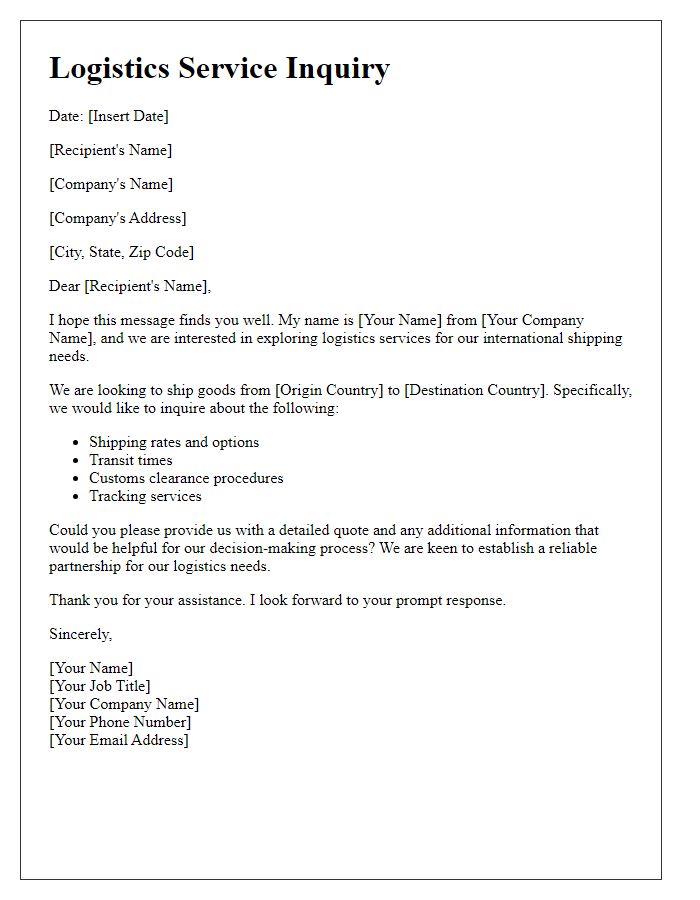
Letter template of logistics service inquiry for supply chain management.
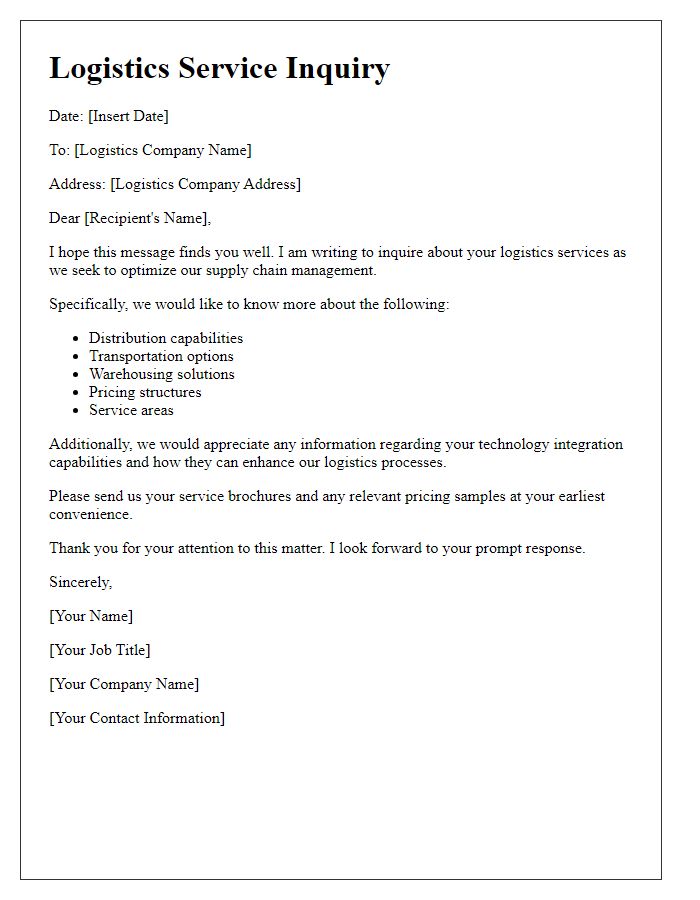
Letter template of logistics service request for customized shipping services.
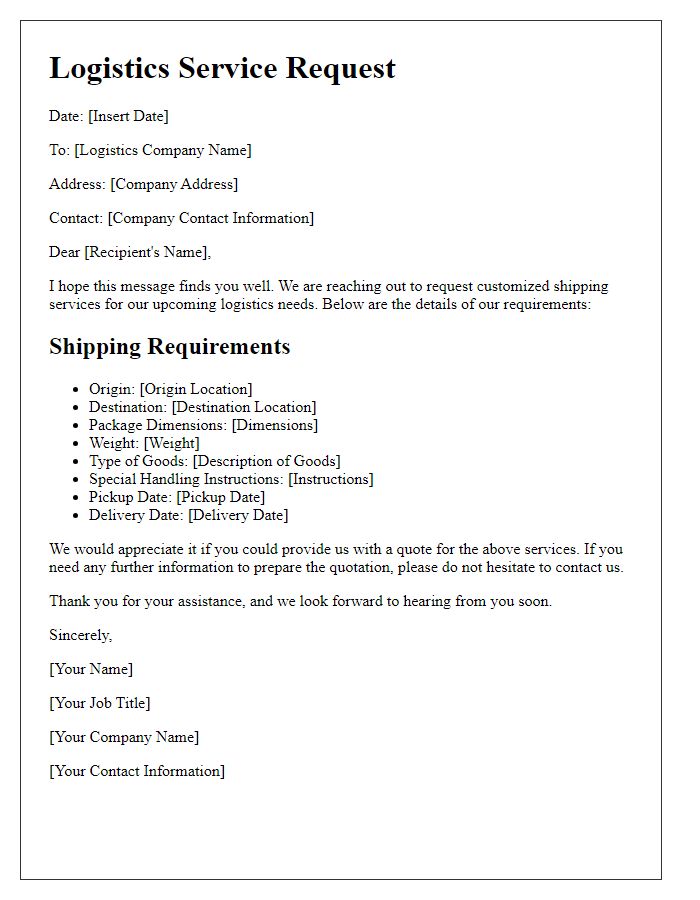

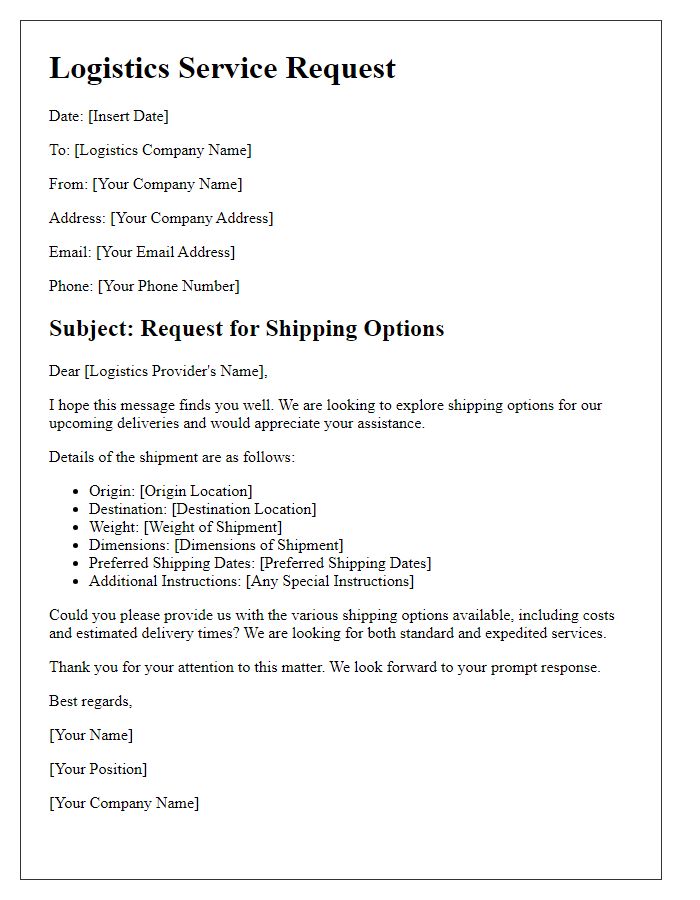
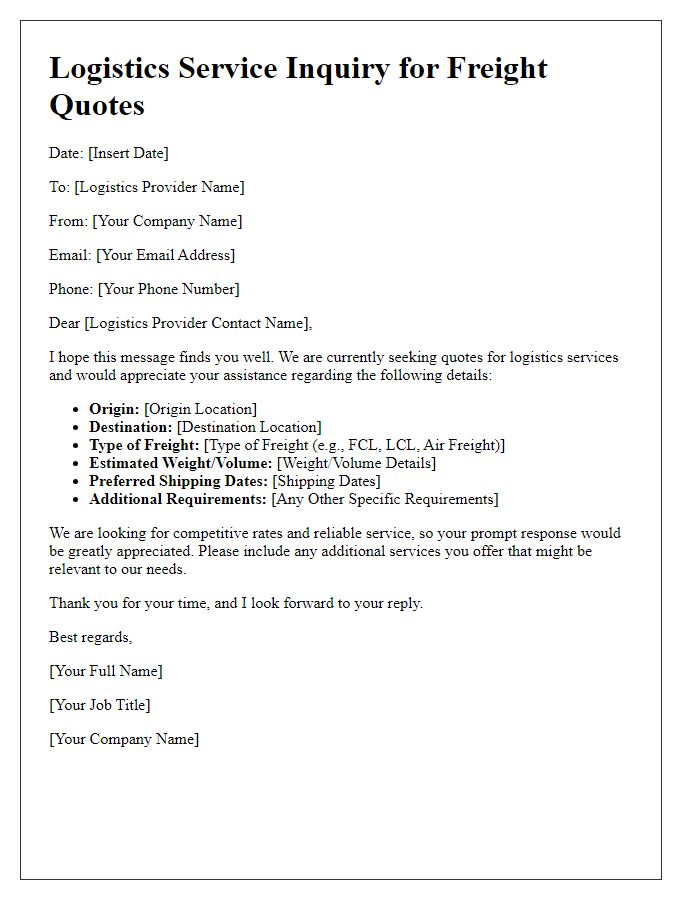
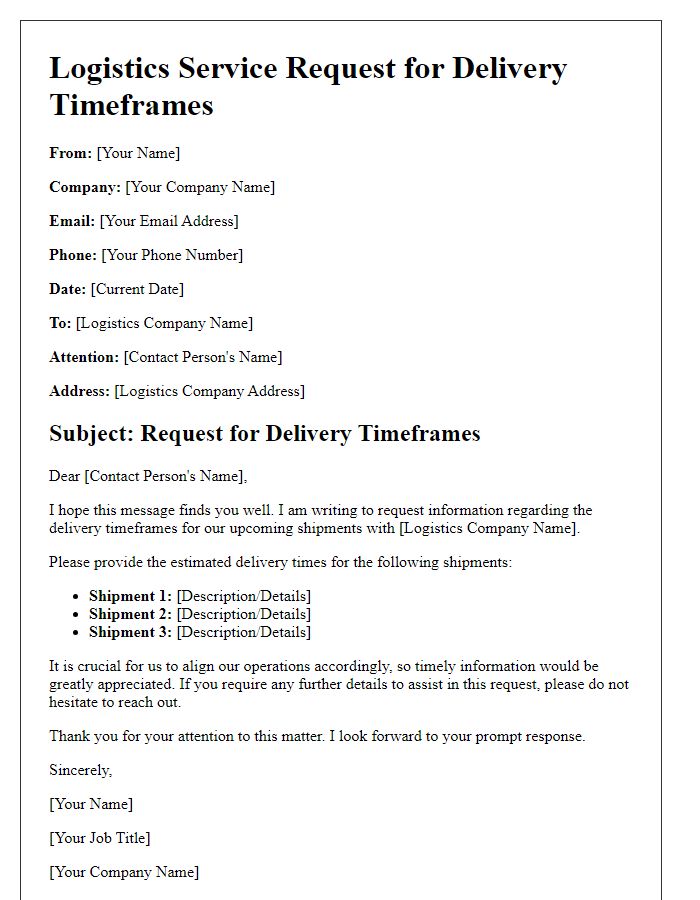
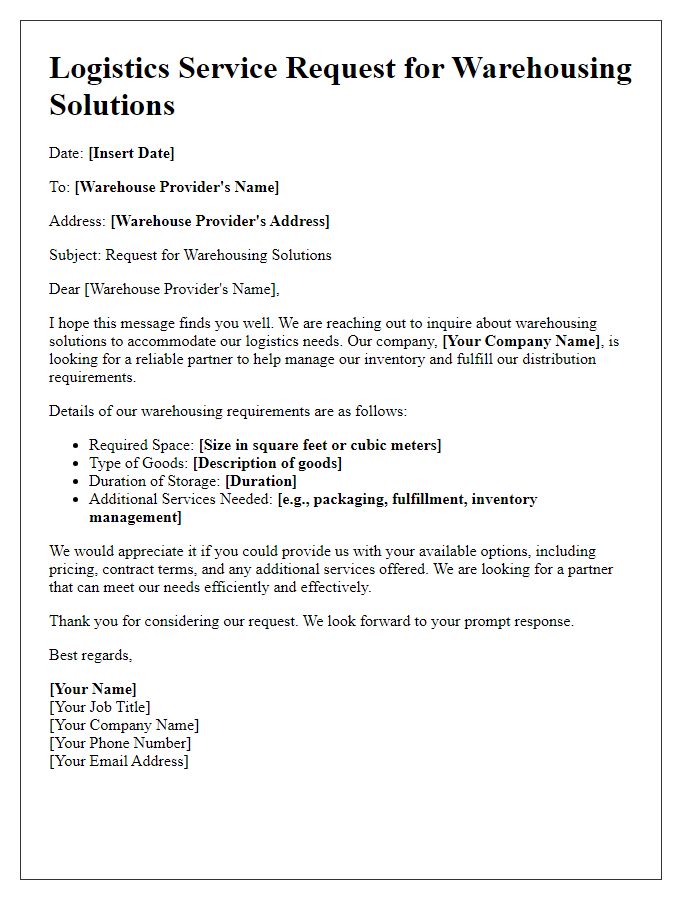
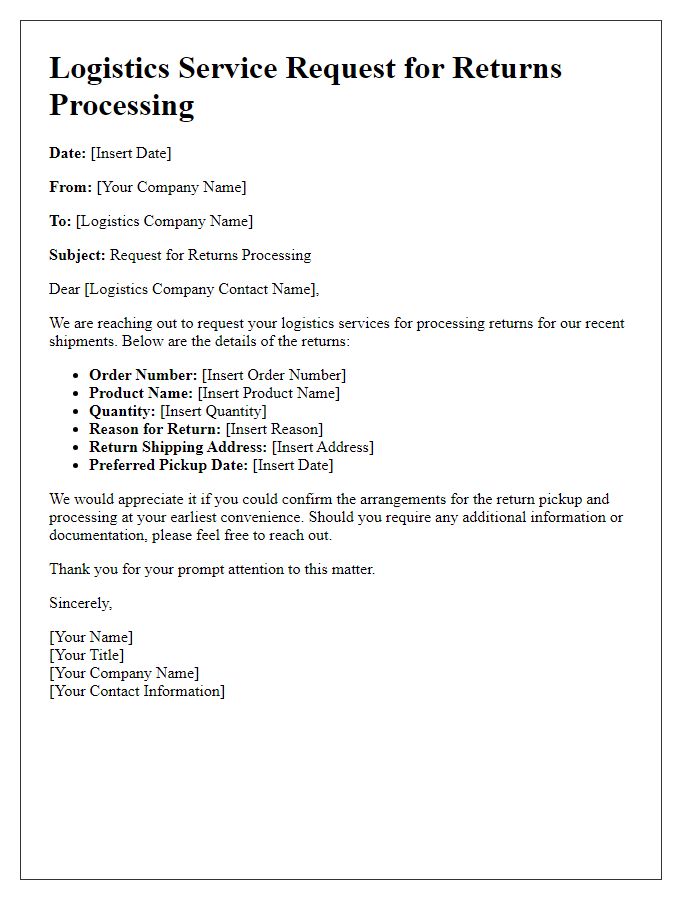
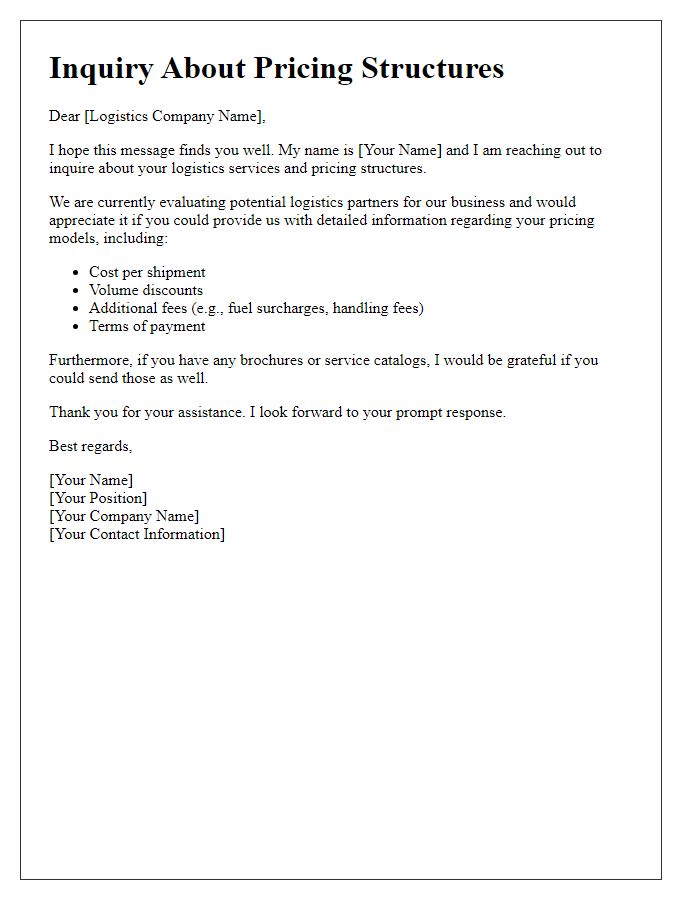


Comments